Definition
Tourette’s syndrome is a nervous system problem with tics like vocalization (vocal tic) and repetitive movements of muscles (motor tic). In particular, a person may frequently blink their eyes, babble offensive words, blurts out unusual sounds. Tics generally appears in kids between 2 – 15 years old, mostly in males than in females. The tics can get milder and fade away when kids step into adulthood. Parents can help their children to cope up with the conditions until they reach adulthood.
There are two types of tics associated with the Tourette’s syndrome.
- Vocal tics. Involuntary sniffing or humming and repeated throat clearing
- Motor tics. Unfortunate uncontrollable movements such as disgusted facial expression, shoulder shrugging, head jerking, and extreme eye blinking.
Again those two tics can be classified as follows:
- Simple vocal tics are throat clearing and grunting.
- Complex vocal tics: Unconditional use of offensive words, calling out, and imitating other people words.
- Simple motor tics: Usually simple motor tics involve a single group of muscle which does eye blinking and grimacing.
- Complex motor tics: This type involves more than one group of muscles which do series of movements like head banging, touching their own body part or another repeatedly. In rare cases, a person with Tourette’s syndrome may hurt themselves.
History
A French neurologist named Dr. Georges Gilles de la Tourette, who first described Tourette’s syndrome during the year 1885 in an 86 year old French noblewomen.
Epidemiology of Tourette’s syndrome
Even though it becomes as soon as taken into consideration rare, TS is a commonplace medical condition. About 1% of the population has TS; however, depending on the study, the rate of prevalence can be as excessive as 38%. Studies additionally report that as much as 24% of children develop tics during childhood in some unspecified time in the future.
TS influences 3 to 4 instances as many boys as girls. The tic signs and symptoms can range from moderate or excessive. Tics can occur in a different way between people.
Causes
The causes of Tourette’s syndrome is unknown. However, researchers suggest that there are some problems in the basal ganglia of the brain. Basal ganglia are brain cells responsible for the brain functions such as decision making and motivation.
- In a patient with Tourette’s syndrome, a temporary problem in basal ganglia cells disrupts the process of decision making.
- The conditions of Tourette syndrome are hereditary and the mutation of a gene named SLITRK1 affects the normal brain development then it triggers the symptoms of Tourette’s syndrome.
- Childhood infection – Streptococcal infection during childhood may be linked to the Tourette’s syndrome. This is referred to as Pediatric Autoimmune Neuropsychiatric Disorders Associated with Streptococcal (PANDAS) infections. During the course of infection, antibodies produced by the immune system may interact with brain tissue and it affects the brain functions.
- Disturbance in the levels of neurotransmitters such as dopamine and serotonin might play a role in the occurrence of Tourette’s syndrome.
Risk factors of tourette’s syndrome
- Males are 3-4 times very much prone than females to develop Tourette’s syndrome.
- Family history. The family history of the tic disorder or Tourette’s syndrome may increase the risk of developing Tourette’s syndrome.
- Alcohol and smoke. Mother drinking alcohol and smoking causes a major risk factor during pregnancy.
- Environmental factors also play a role in Tourette’s syndrome.
- Complication during delivery.
- Child with very low birth weight
- Prenatal factors such as noxious exposure.
Symptoms
Tic is the common symptom of Tourette syndrome. Symptoms may vary from person to another. It ranges from mild to severe. Symptoms may worsen when the person is sick, excitement, stress or tired. Symptoms may affect the daily activities and quality of life.
There are two main classifications of tic:
Simple tics: Movements are sudden, often repetitive and short lived. This may involve the movement of the single muscle or an uttering a single sound.
Complex tics: Complex tic involve in the movement of several muscle groups.
Tics also can involve in movement (motor tics) or sound (vocal tics). Motor tics usually begin before vocal tics do. But the spectrum of tics that people experience is diverse.
Common vocal tics that occur in Tourette syndrome
|
Simple vocal tics |
Complex vocal tics |
|
Blowing |
Repeating one’s own words or phrases |
|
Squeaking |
Repeating others’ words or phrases |
|
Sniffing |
Using vulgar, obscene or swear words |
|
Coughing |
Cursing |
|
Grunting |
Phrases out of context |
|
Throat clearing |
Complex and loud sounds |
Common motor tics occur in tourette’s syndrome
|
Simple motor tics |
Complex motor tics |
|
Eye blinking |
Jumping |
|
Shoulder rotation or elevation |
Kicking |
|
Head jerking |
Touching objects |
|
Lip contractions |
Retching |
|
Eyes rolling in the orbits |
Trunk bending or rotation |
|
Torticollis (turning the neck to one side) |
Burping |
|
Opening and closing of the mouth |
Socially inappropriate movements |
|
Abdominal contractions |
Obscene gestures |
|
Stretching of arms and legs |
Imitation of other peoples’ gestures |
Complications of tourette’s syndrome
People with Tourette’s syndrome will live active and healthy but frequently involves behavioral changes and social challenges that may affect your image.
Tourette’s people may have a problem in learning habit. This may affect study skills such as reading, learning or arithmetic
Conditions that are associated with Tourette’s syndrome include:
- Obsessive-compulsive disorder (OCD)
- Attention-deficit/hyperactivity disorder (ADHD)
- Learning disabilities
- Autism spectrum disorder
- Sleep disorders
- Depression
- Anxiety disorders
- Pain related to tics, especially headache
- Anger-management problems
Diagnosis and test
There are no tests that can diagnose Tourette’s syndrome. The diagnosis can be done based on your symptoms and signs.
Some criteria that are used to diagnose Tourette’s syndrome include:
- Your doctor makes a diagnosis after verifying that the person had both motor and vocal for at least one year. (not necessary at the same time)
- Tics begin before age 18
- Tics are not caused by the other substances and medications. (e.g., Huntington Disease, infection, head injury)
- Tics may occur frequently or more than a year
The signs and symptoms should be diagnosed because it may cause other conditions. Vision problems can arise which may cause eye blinking or some other allergies.
Tics can also be caused by other conditions then the Tourette’s syndrome. To diagnose other caused of tics, your doctor may recommend tests such as
- Blood test
- Imaging test of brain such as MRI
Treatment and medications
There is no cure for Tourette syndrome. But some treatments and medications can control the various conditions under Tourette’s syndrome.
Therapy
Your doctor may recommend behavioral therapy or psychotherapy. It involves, providing counseling with mental health professionals. Behavioural therapy includes awareness training, respond training, cognitive training for tics.
Some of the training that followed during psychotherapy sessions:
- Deep breathing exercises
- Hypnosis
- Guided meditation
- Relaxation techniques
This type of therapy will be helpful to ease the complications of Tourette’s syndrome.
Medications
- To control tics, to control tics, Haloperidol (Haldol), fluphenazine (Prolixin), and pimozide (Orap) can be used which work on a brain chemical called dopamine
- High blood pressure drugs that can also treat tics such as Clonidine (Catapres) and guanfacine (Tenex, Intuniv)
- Fluoxetine (Prozac), paroxetine (Paxil), sertraline (Zoloft), and other antidepressants, which can relieve anxiety, sadness, and obsessive-compulsive symptoms.
Prevention of tourette’s syndrome
- There is no prevention of Tourette’s syndrome. Some physical complication can be managed with medications and behavioral therapy.
- Psychotherapy may also help people with Tourette syndrome cope with the psychological and social effects of the condition.
 Diseases Treatments Dictionary This is complete solution to read all diseases treatments Which covers Prevention, Causes, Symptoms, Medical Terms, Drugs, Prescription, Natural Remedies with cures and Treatments. Most of the common diseases were listed in names, split with categories.
Diseases Treatments Dictionary This is complete solution to read all diseases treatments Which covers Prevention, Causes, Symptoms, Medical Terms, Drugs, Prescription, Natural Remedies with cures and Treatments. Most of the common diseases were listed in names, split with categories.
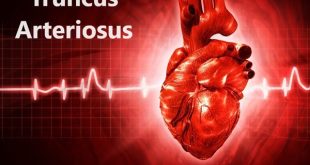
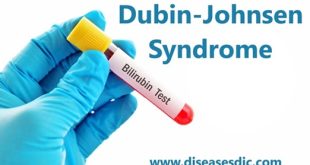
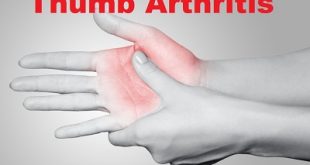
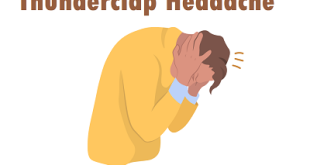
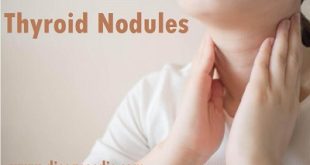
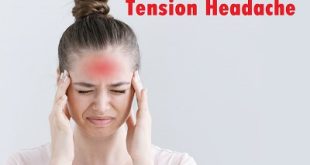
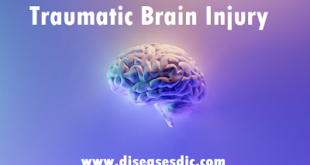

can it affect 25years because a friend of blink his eye and twist his mouth simultaneously.
Yes it even affects a person in adulthood. Please go for a treatment immediately to the nearby specialist.
very fantastic program I suggest that natural occurring diseases to be included
Thank you for your feedback. Sure we will work for naturally occurring diseases updates.
One of my son always jerk his head and stretches his neck from time to time. pls.help me.
Consult a neurologist to get cure for this problem.
Does onlyy the tics fade away wen the child reachess the adulthood..??? And wht will b the symptms n signs in adulthood??
People with tics may uncontrollably raise their eyebrows, shrug their shoulders, flare their nostrils, or clench their fists. These are physical tics. Sometimes a tic can cause you to repeatedly clear your throat, click your tongue, or make a certain noise, such as a grunt or a moan.
What of a child of almost fourteen years which can’t talk well, write and he is acting like a baby of one more two years ago
Please consult a psychologist.
I had this tic when I was 4years that eye blinking and it is growing uncontrollably .please help because it’s affecting my socially and my sight
consult a doctor and get some therapy to get reduce your eye blinking.
I too have the similar symptoms and m 39 years old. I suddenly get muscle pull in my hands n legs. Earlier my eyes would keep blinking. My mind doesn’t work I would n still become blank while working, studying , talking or during any activities. I get very aggressive and at that moment I can even harm myself or anyone I loose my mind totally and then I cool down within 5 minutes and m normal. I want to know is it a mental disorder that m suffering from coz my husband refuses to get me treated.
Please consult a psychologist.
my vocal comments started after a traumatic event, it doesn’t happen very often sometimes I don’t notice it until I finished the statement other times I catch myself after a word and can stop it. it is a detrimental comment address to me but if anyone hearing it would think I was talking to them. hence the big problem I don’t want anyone to think I said something bad to them. I have other involuntary movements. restless leg syndrome, sometimes very serious. any advice would be helpful .
please consult a doctor.
salam . i am suffering from obsess plz give me some idea
please read the obesity in posts.
I am suffering from obsess plz give me some ideas
please see obesity in post
I have learnt alot
This disorder is rare in my Country